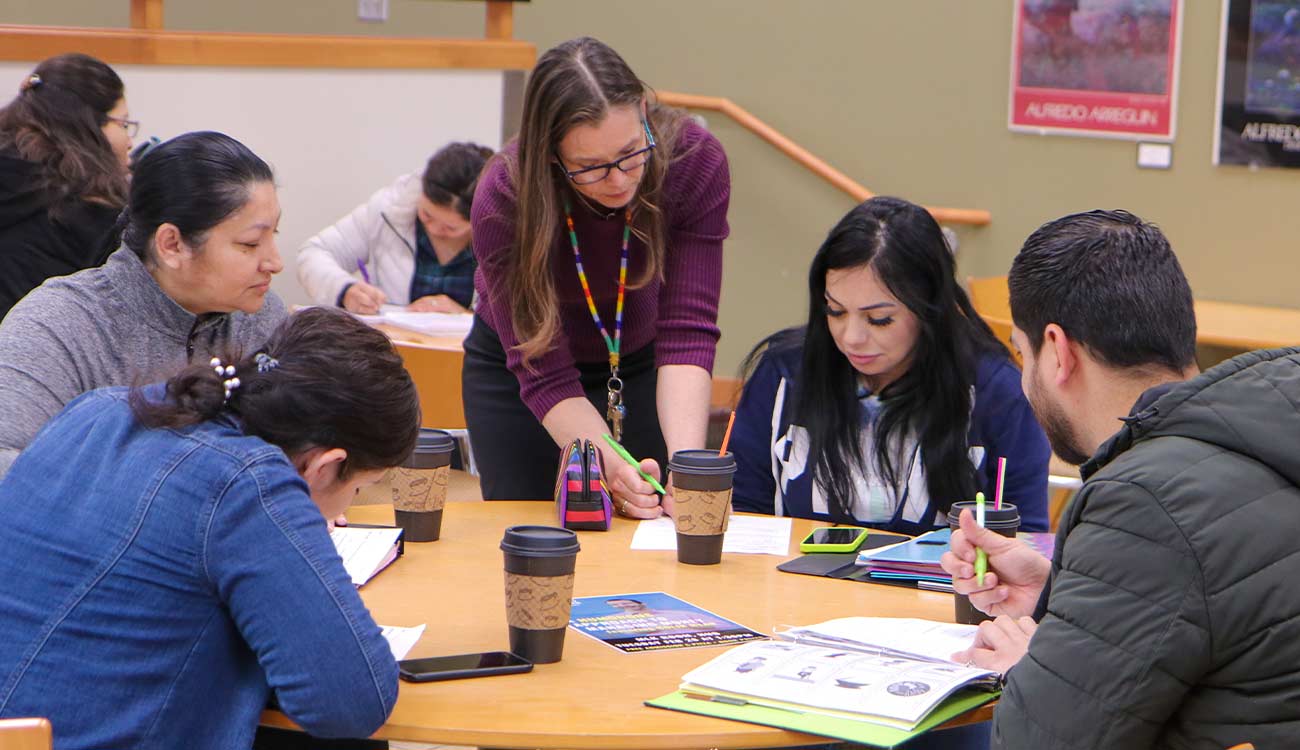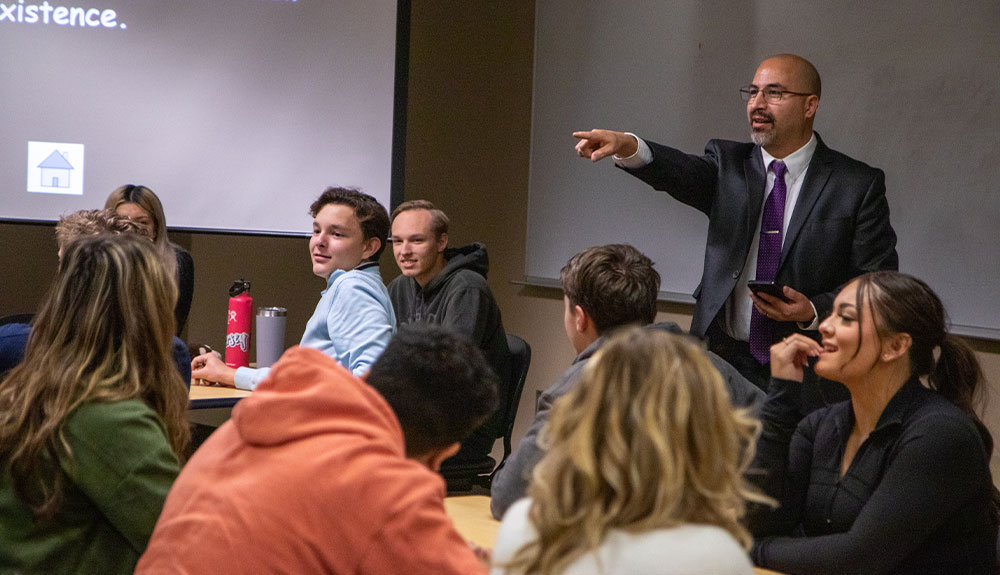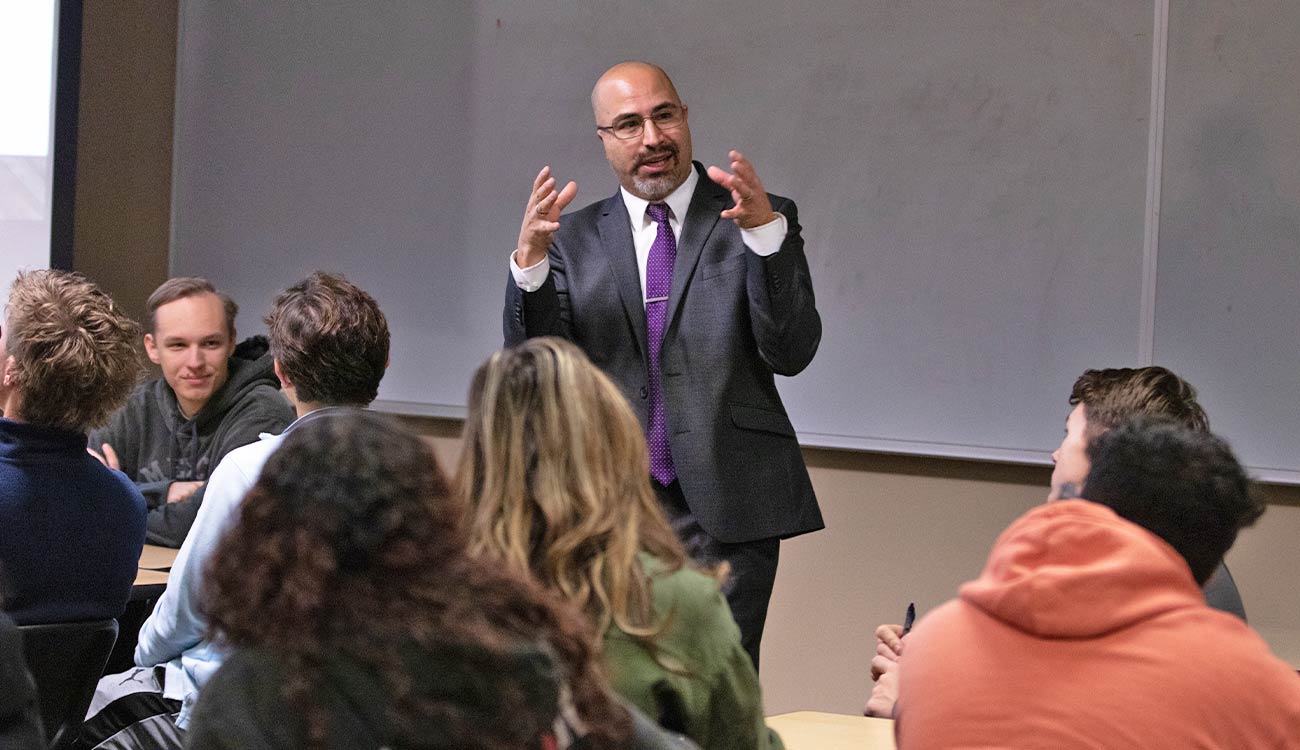Tenure process provides faculty an opportunity to elevate instruction
In high school, Keith Reyes wasn’t a good student. Yet he persevered in his education and would go on to earn his doctorate in educational leadership from Washington State University and join Yakima Valley College’s faculty in 2010.
“I really kind of came into this many years ago wanting to be attentive to my students’ voices,” said Reyes, a first-generation college student himself whose students also are largely first-generation. “Being in this place has made me even more sensitive to wanting to hear my students and to see what they have to say about the experiences that they’re having in my class. Both the good and the bad.”
Today, Reyes is one of several YVC faculty members going through the institution’s tenure review process. It’s a challenging, multi-year process, but for Reyes and others, it’s also an opportunity to hone their craft as outstanding educators.
“We are celebrating trying new things and we’re celebrating failures when that comes from trying new things but learning something important in that process.”
— Ericka Tollefson, English Language Acquisition Instructor
Jennifer Ernst, vice president for instruction and student services, noted that faculty who complete the tenure process must demonstrate a high level of teaching and service to the college community.
“Their tenure is a testament to their commitment to our institution and to their students,” Ernst said. “Yakima Valley College students benefit from having tenured faculty members who are experts in their field and who are passionate about teaching.”
Ericka Tollefson, who teaches English Language Acquisition classes at YVC, is in the third and final year of the tenure process. Throughout the process, she receives regular feedback from fellow faculty and students who serve on her tenure committee.
“Every quarter, we get together and we meet as a committee and we set up what’s going to happen for the following quarter,” Tollefson said. “We go over reports. We review my goals. That time of sitting together and kicking around ideas is amazing — we have these ongoing discussions about pedagogy, what my goals are and how my goals are changing.”

Each quarter, every member of the committee also observes her in the classroom in addition to writing reports that evaluate her work and offer feedback for improvement.
“It is so humbling that these people are giving up so much of their time to support me in this process,” Tollefson said. “That includes the student representative [because] they spend hours and hours on this as well, coming to the meetings, writing the reports, doing observations. And especially for my students, who are language learners, to write a report is extremely difficult in English.”
To help with that, she noted her tenure committee chair, Raquel Ramirez, will work with the student representatives to translate their report into English.
The intensive feedback and conversations that take place during the tenure process, Tollefson said, contribute to a broader positive impact on instruction across YVC. Because so many faculty are involved, either as candidates for tenure or as members of tenure committees, there’s opportunity for faculty to experiment with new ideas and learn from one another’s experiences.
For example, this year Tollefson is also visiting the classrooms of faculty on her committee.
“For me to be able to go out and observe other master teachers and then think about how I can tweak and steal the amazing things that they’re doing, that’s a tremendous opportunity,” she said. “I was very intentional in my tenure committee trying to choose people that work in different areas of the college that I didn’t naturally have day-to-day contact with because I wanted different lenses to look at my work.”

Reyes, a sociology instructor in the second year of the tenure process, said much of the feedback from the committee revolves around how to improve teaching. For example, one suggestion was to begin each class session with a statement of objectives for learning outcomes for that day.
Other feedback is broader, such as how to distribute his time and making sure that his teaching isn’t compromised by volunteering to serve on so many committees.
In addition to evaluations by tenure committee members, faculty going through the tenure process also submit self-evaluations which delve into how they are contributing to YVC’s institutional goals and mission as well as reflections how their academic program is serving students and opportunities for improvement.
In Tollefson’s fall self-evaluation, for example, she reflected on the subject of assessing student learning — what gets assessed, when does that happen, why it’s done and what does it mean.
“That has been an ongoing conversation that [faculty] have had at every gathering, every meeting,” she said. “It’s been really fulfilling to be able to talk to different people and just get a lot of different ideas.”
Reyes believes that going through the tenure process is not only improving his work as a faculty member now but will continue to do so in the years to come.
“It’s going to just continually help me refine my craft and help me really be sensitive to the needs that my students have in the classroom,” Reyes said. “It’s very humbling to be vulnerable and subject to critique.
“I think that the tenure process allows for a public vetting of individuals into this academy, into this institution, in a way that is mindful of not just the colleagues that people are working alongside but, more importantly, the people we serve. I think that’s a vital process for aligning the individual with an organization’s institutional goals and values.”
